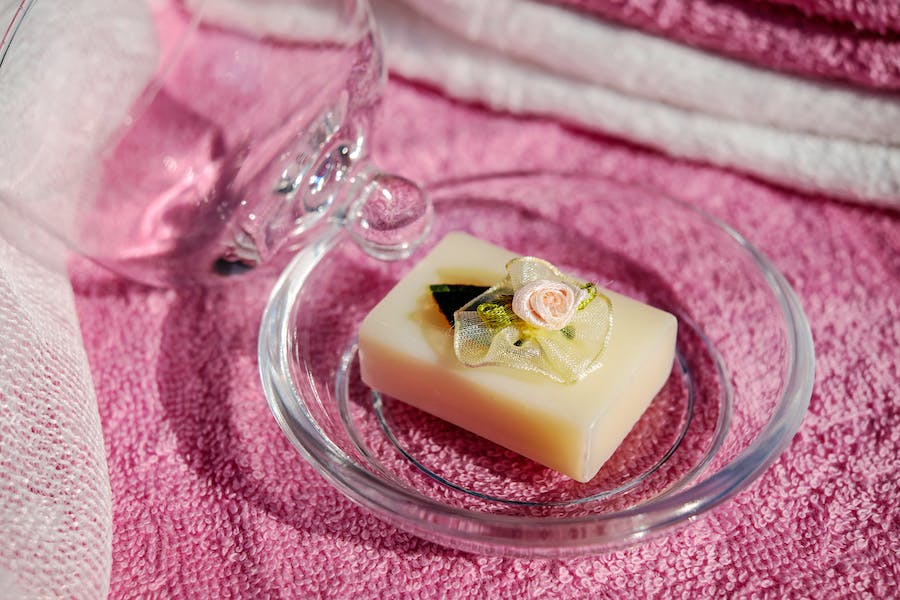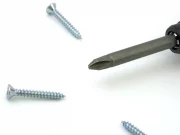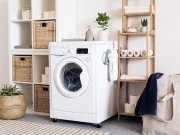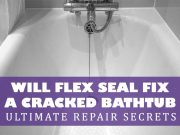
Soap can expire, but it often lasts for years without losing effectiveness. The shelf life varies depending on the type of soap and its ingredients.
Soap is a household staple, essential for maintaining hygiene and cleanliness. Over time, the question arises—can soap expire? While soap does not spoil like food, it can deteriorate, especially if it’s organic or all-natural. Typically, conventional bar soaps have a long shelf life due to their chemical makeup and lack of water content, which minimizes bacterial growth.
However, certain factors such as excessive moisture exposure, high temperatures, and the presence of natural oils can affect a soap’s quality over time. Utilizing soap beyond its prime might result in a reduced scent, a change in texture, or a less effective cleansing experience. Therefore, although expiration isn’t a significant concern, it’s important to store soap properly to maximize its longevity and maintain its cleaning power.
The Shelf Life Of Soap
The Shelf Life of Soap: Ever wonder if the soap by your sink has a ticking clock on its efficacy? Unlike food, soap doesn’t come with a strict expiration date, but that doesn’t mean it lasts forever. Let’s dig into how long you can count on your bar or bottle of soap to do its cleaning duty effectively.
Factors Affecting Soap Longevity
Several elements determine how long a soap remains effective:
- Type of Soap: Handmade, antibacterial, or commercial, all have different lifespans.
- Ingredients: Natural ingredients can shorten shelf life.
- Preservatives: Soaps with preservatives last longer.
- Storage: Cool, dry places keep soap fresh.
- Usage: Frequent use can introduce moisture and bacteria.
Visual Signs Of Soap Expiration
Stay alert for these signs that indicate your soap might be past its prime:
| Sign | Description |
|---|---|
| Faded Color | Original color lightens or changes. |
| Strange Smell | Gone or smells off. |
| Dry or Brittle Texture | Soap cracks or crumbles easily. |
| Surface Changes | White spots or a slimy film may appear. |

Credit: www.etsy.com
Soap Composition And Deterioration
Soap sits quietly in our bathrooms, an essential we often take for granted. But, like many products, soap has a life span. The ingredients within soap interact over time, sometimes changing how well the soap works. Understanding the composition of soap can help us figure out why and how it deteriorates.
Ingredients That Influence Soap’s Life Span
The life span of soap largely depends on what’s in it. Here are key ingredients that affect how long soap remains effective:
- Essential oils: Often added for fragrance, they can oxidize and change scent over time.
- Fatty acids: These keep the soap creamy but can go rancid, affecting quality.
- Colors and dyes: Some may fade or change appearance, signaling old soap.
- Preservatives: They extend shelf life but can break down eventually.
- Glycerin: It attracts moisture, but can also attract bacteria and degrade.
These ingredients all play a part in whether a bar of soap will stand the test of time or slowly deteriorate.
How Natural And Synthetic Soaps Differ
Natural and synthetic soaps may sit side by side, but they’re not the same in longevity:
| Natural Soaps | Synthetic Soaps |
|---|---|
| Use organic ingredients that can expire faster. | Have chemicals that often prolong shelf life. |
| Lack preservatives, leading to a shorter life span. | include preservatives that help prevent deterioration. |
| May change color, scent, or texture as they age. | Retain consistent color and scent for longer periods. |
Choosing between natural and synthetic soaps might be a preference, but it’s also a decision about shelf life. Both types have their pros and cons, with natural soaps offering a gentler option and synthetic soaps often lasting longer.
Safety And Efficacy Over Time
Soap shelves often hold bars and bottles beyond their ‘best by’ dates. Understanding how time affects soap’s safety and cleaning ability is key. Soaps may not spoil like food, but they can change over time.
Does Old Soap Lose Cleaning Power?
Soap’s primary job is to clean and remove germs. As soap ages, its ingredients degrade. Once potent detergents can become less effective. This leads to a decrease in the soap’s overall cleaning power.
- Fragrance fades
- Texture may change
- Antibacterial properties could weaken
Risks Of Using Expired Soap
While expired soap isn’t dangerous, it can cause problems. These risks aren’t always obvious. Skin irritation or reduced effectiveness may occur.
| Soap Age | Risk |
|---|---|
| 1-2 Years | Minimal risk, possible dryness |
| 2+ Years | Increased risk of irritation, ineffectiveness |
Using old soap for handwashing or bathing may not fully remove germs. This could lead to skin issues or infections.
- Check soap expiration dates
- Avoid using soap that looks or smells off
- Test a small area if unsure about the soap’s age
Storage And Preservation Tips
Storage and Preservation Tips play a vital role in maintaining the integrity of soap over time. Ideal storage can significantly extend its lifespan and ensure it remains effective and pleasant to use. Let’s dive into how to keep your soap in tip-top shape for as long as possible.
Best Practices To Extend Soap’s Life
- Keep soap dry: After use, ensure the soap isn’t sitting in water. A well-drained soap dish can help.
- Avoid humidity: Store soap in a cool, dry area away from steam and moisture.
- Wrap it up: If not in use, wrap soaps in paper to protect them from light and dust.
- Rotate bars: Use multiple bars in rotation to give each bar a chance to dry out between uses.
Avoiding Common Storage Mistakes
- No airtight containers: Soap needs to breathe, so don’t store it in airtight containers which can promote mold growth.
- Omit direct sunlight: Sunlight can fade soap’s colors and scents. Store in a shaded place.
- Don’t overcrowd: Give soap bars their own space to avoid scents mixing or colors transferring.
Date Labels And Regulations
Ever glanced at a soap bar and wondered if it could expire? People often do. The truth is, soaps do come with date labels. Let’s decode these dates and what they mean for soap freshness and safety.
Understanding Expiration Dates On Packaging
Soaps often have a “best by” date stamped on their packaging. This date suggests when the soap’s quality is at its peak. It’s not a hard and fast rule but a guideline. Ingredients like essential oils may lose their scent over time. But, soap does not necessarily “go bad” like food products do.
The dates also hint at the soap’s efficacy. Over time, the cleaning ability can diminish. Look for these key elements on soap packaging to assure top quality:
- Manufacturing Date: Tells when the soap was made.
- Best Before/Expiration Date: Indicates optimal usage timeframe.
- Batch Number: Helps trace the production details.
Legal Requirements For Soap Labeling
In the soap industry, regulations dictate label specifics. They ensure consumers get accurate information. Not all soaps need an expiration date by law. Still, many manufacturers include them for customer satisfaction.
Here’s a simple breakdown of what the law says:
| Regulation | Description | Affected Products |
|---|---|---|
| FDA Regulations | Require clear labeling, expiration date not mandatory | Soaps claiming skincare benefits |
| Consumer Safety Acts | Focus on product safety information, including usage | All consumer goods, including soaps |
| Trade Specifications | May require batch numbers for quality control | Specialty and artisanal soaps |
Always check your local regulations to understand the labeling requirements for soaps. This ensures you stay informed about the products you use daily.

Credit: www.amazon.com
Frequently Asked Questions On Can Soap Expire
Is It Ok To Use Expired Soap?
Using expired soap is generally safe, but its effectiveness may diminish over time. The scent and texture may also change, so check for any signs of spoilage before use.
Can You Use 30 Year Old Soap?
Yes, you can use 30-year-old soap if it appears clean and smells normal. Over time, soap may lose fragrance and become less effective, but it rarely spoils or becomes harmful. Always check for unusual mold or odor before use.
How Do You Know If Soap Is Bad?
Check your soap for changes in appearance, smell, and texture. Signs of bad soap include discoloration, rancid odors, mold growth, or an extremely dry, crumbly consistency. Replace it if you notice these issues to ensure optimal hygiene.
Is It Ok To Use Old Soap?
Yes, using old soap is generally safe unless it shows signs of spoilage like an unusual odor or mold. Old soap may be less effective and lose fragrance but it’s typically okay for cleaning.
Conclusion
Uncovering the truth about soap’s shelf life has been enlightening. Soap can indeed expire, diminishing in efficacy and fragrance over time. Ensure long-lasting quality by storing your soap properly, and stay mindful of expiration dates. Remember, fresh soap ensures optimal hygiene and a delightful sensory experience every time.




















